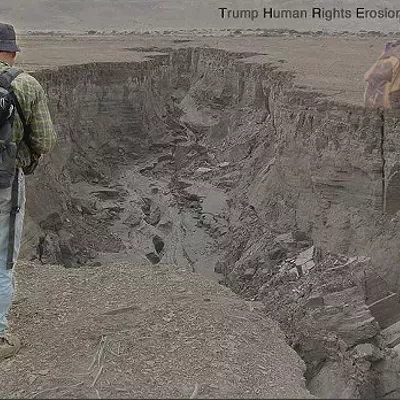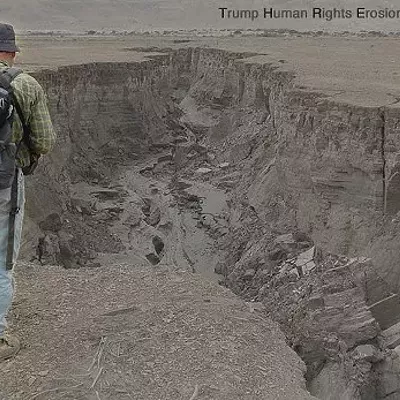Wednesday, May 23, 2018
The Evolution and Devolution of Diane Douglas
The Evolution and Devolution of Diane Douglas, short version:
In 2014, Diane Douglas was the Republican Tea-Party/Wingnut Education Superintendent candidate from hell. But when she was elected, she evolved into a higher form of herself. She became a do-no-harm official who made an creditable effort at learning on the job and working in a nonpartisan manner for Arizona's teachers and students. Then came Trump's candidacy, which tapped into Douglas' inner wing nut. She's been in a devolutionary slide ever since. A second Douglas term could turn out to be as bad as I feared the first would be. Donald Trump/Betsy DeVos bad. Or worse, since she's closer.
The longer version:
My colleagues and I at Blog for Arizona had a hand in Diane Douglas' winning the 2014 Republican primary. We outed then-Superintendent John Huppenthal's compulsion for writing anonymous comments on blog posts ranging from scattered-but-reasonable to loopy to downright racist. When his anonymous comments made it to the mainstream media, Huppenthal's campaign crashed and burned. Good riddance, I thought. We should be able to defeat Douglas.
Douglas leaned way, way right. An example. When she served on the Peoria School Board, Douglas said she "vehemently opposed" the International Baccalaureate program because its "goal is to promote world government." During the campaign, she was nearly incoherent in interviews and refused to talk to reporters. Her most in-depth interview was with recalled senator and virulent racist Russell Pearce. She stayed out of urban Arizona, spending her time in small towns.
In the general, Douglas lost both Pima and Maricopa counties, yet she managed to eke out a win. I was certain when she took office, she would adopt the racial animus of her predecessors, Horne and Huppenthal, and plunk a pile of soggy teabags on top of their mess.
To my surprise, when Douglas took office, she seemed properly awed by the weight of her responsibility. While she tweaked Ducey and the State School Board mercilessly in the first months of her term, which I thoroughly enjoyed, she adopted a light touch when it came to schools. She didn't attack TUSD as her predecessors did. She didn't tear into International Baccalaureate, sex education, history texts, evolution or any of the other right wing bête noires. Instead, she embarked on an education listening tour around the state, where she actually listened. She put out a publication full of mostly sensible suggestions for improving the state's education system.
I was one of the few people writing from the left who reviewed Douglas favorably, for a few reasons. First, I was mightily relieved. She could have been much, much worse. Second, I thought her educational priorities were generally nonpartisan, pro-teacher and pro-student.
Then came September, 2016, when Trump was in the last month of his campaign. Before then, Douglas pretty much stayed out of electoral contests. This time, she shouted her support for Trump from the rooftops, in a news release sent out via the state email system.
Uh oh.
By 2017, Douglas was in full Trumpian mode. When she released information about Empowerment Scholarship Accounts (aka Voucher on Steroids) to the Arizona Republic, the data revealed hopelessly sloppy record keeping of students' individual accounts. When the Republic called her on it, she played her Trump card. She called the paper's criticism "Fake news" and complained about the paper's "hack media lawyer."
And now, Douglas and her team have removed references to evolution from the state science standards. In the past she said Intelligent Design should be taught in schools. When she was reminded of her earlier statement in recent stories, her response was, "Fake news." Of course.
Who knows what we'll see from Douglas in the next few months? And if she wins a second term in November . . .
If evolution falls, can the fall of International Baccalaureate—and fact-based history, and reading controversial fiction, and respecting religious pluralism, and upholding gender-neutral policies, and all those other Commie/Socialist features of our government schools—be far behind?
Tags: Diane Douglas , Superintendent of Public Instruction , Blog for Arizona , Donald Trump , Fake News , Image
















